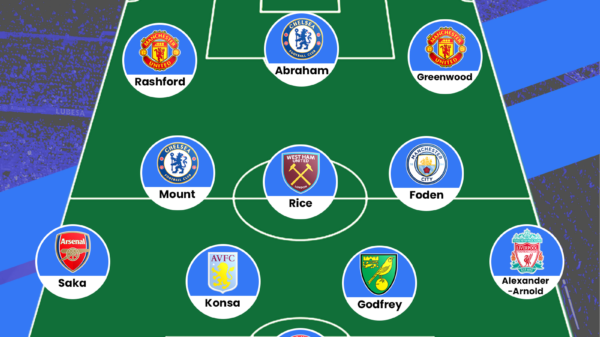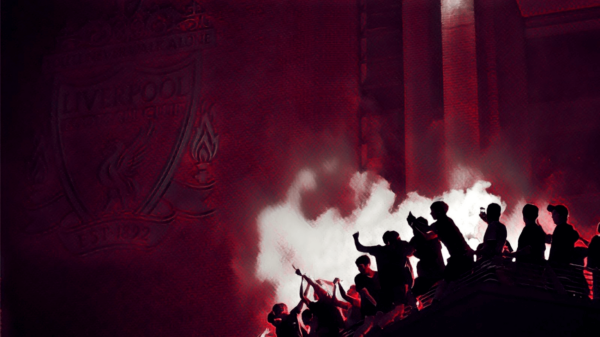Make no mistake about it; the Premier League has been shaped by the influx of foreign players and its future will undoubtedly be influenced in the same manner. The days of United’s class of ’92 have long since passed in a nation that has produced some great players over the years. But this is not about football in England, it’s about football at Arsene Wenger’s Arsenal, who was arguably the biggest catalyst of the great influx of foreign footballing talent that has taken up shop in what is arguably the worlds best, if not most entertaining league.

You would get much of an argument from Arsenal supporters about our trend of bringing in continental and foreign talent. Names like Bergkamp, Overmars, Pires, Henry, Ljungberg and Vieira still glide off the lips of Gooners the world over. It was this period under the Alsatian headmaster that laid the framework for the way we currently deal with things. As a continental manager who has commented on multiple occasions about the lack of technical ability in British players, our success with foreign players leading the way remains a constant.
Despite many of us touting our British core of Gibbs, Chamberlain, Ramsey, Wilshere, Jenkinson, Walcott and Chambers, the realty of it remains that our most talented and influential players are indeed foreign. Cazorla, Özil, Sanchez, Giroud, Koscielny and now Cech are unquestionably the key cogs in the wheel both in ability and from a tactical standpoint – foreign players in key roles is what we do, and it’s not about to change moving forward either.
Arsenal has done incredibly well to bring in the highly prized Andries Jonker to take over the reigns of the youth academy. With a dossier that includes management roles of Youth and Regional Selections for the Netherlands on two occasions, assistant manager positions at Willem II Tilburg, Bayern Munich and Wolfsburg, Jonker brings a wealth of youth development experience at the highest level in two nations that are at the head of the class when it comes to their youth pipelines.
As any Dutchman will attest and insist upon, a clubs youth academy is vital to building any successful top-level club, and hailing from the continent as well, Jonker will undoubtedly prefer young players from his neck of the woods rather than local products. With Arsenal’s youth academy in tatters in recent years, Jonker wasted no time in putting his stamp on the system by bringing in talented European players like Jeff Reine-Adelaide as well as many others. If his actions are any thing to go by, Arsenal will rely on continental players in years to come as well as currently, but the question is why.
I eluded to it a little bit earlier, but it’s hard to argue against the fact that British players are not as technically gifted as their European counterparts, which is something that can be boiled down to how nations like Germany, the Netherlands, Spain and France train their young players. The importance of grassroots football and the parts of the game that are emphasized at youth level are parts of the system that are crucial when developing homegrown players, and this is an area where England lags far behind. This is an observation that Wenger made a long time ago and it’s apparent that Jonker is in agreement, so we can certainly all expect our academy to be run in a manner befitting his requirements for what he feels to be an acceptable level of ability, which is something Wenger will surely agree with.
Not since Jack Wilshere broke into the first team has Arsenal really had a player of real quality come through our ranks rather than being purchased from someone else’s academy (such as Chamberlain, Chambers, Bellerin, etc.). It’s certainly time we put faith back into our own system despite us having plenty of cash in the coffers to prize highly-touted youngsters off of other clubs, but with our reliance on European players becoming more and more prominent through the system top to bottom, the question must be asked if that will have a negative effect on our ability to compete for the league.
When you play for Arsene Wenger, you are not only expected to be at a certain technical proficiency that is deemed acceptable, but more and more you are now required to be adaptable and able to play multiple positions. On the surface this is a fantastic requirement given the type of football that is nurtured at the club, but the problem is that there are no physical requirements that come along with it.
When you look at the best examples of technically gifted players at Arsenal and from around the world, they usually are not physically imposing by any stretch of the imagination – they’re smaller, quicker, and able to change directions quickly, and while half of the time they may beat you on the ball or pass you off the park, the other half see’s them bullied off the ball and obliterated in the midfield battles, which happens to have been Arsenal’s weakness for years.
Arsenal youngsters like Wilshere, Jon Toral, Krystian Bielik, Gedion Zelalem and arguably Crowley have all the technical ability in the world, but as we have seen in the past, it means nothing when you cannot turn up in the physical battles that help define the Premier League for what it is. Wilshere is one of the exceptions when it comes to English talent lacking technical ability, but because he does not lack it, he ends up lacking the physical requirements. If Arsenal is to push forward in future days, then emphasis on physical attributes must be married with the technical side of the game, and all they need do is look to the nation that many of Arsenal’s players call home – Germany.
The list of German players who have the right balance of physical toughness and technical brilliance is endless, and its what makes the Germans the gold standard on youth development. Young players such as Johannes Geis, Leon Goretzka, and Kevin Volland continue the trend of molding into players that are blessed with power and grace, and it’s this example that if anyone in England can follow, it’s Arsenal.
At the end of the day, Arsenal will always be at the forefront of the English game and the Premier League. However, if it’s to push forward as a club and return to it’s heyday of being a side who could pass you off the park while running straight through you simultaneously, then both Wenger and Jonker will have to understand that the foreign technical influence has to be blended with English physicality. If they can reinstitute the successful blueprint of days gone by, then the Emirates can finally hope to live up to the best of what Highbury had to offer.
Written by Andrew Thompson.
- 20 Key Young Players to Watch from 20 Premier League Teams - August 10, 2018
- World Cup 2018: Germany Warning Signs - June 20, 2018
- MLS 2017: Top 5 U-22 Players of the Season - December 6, 2017



























































